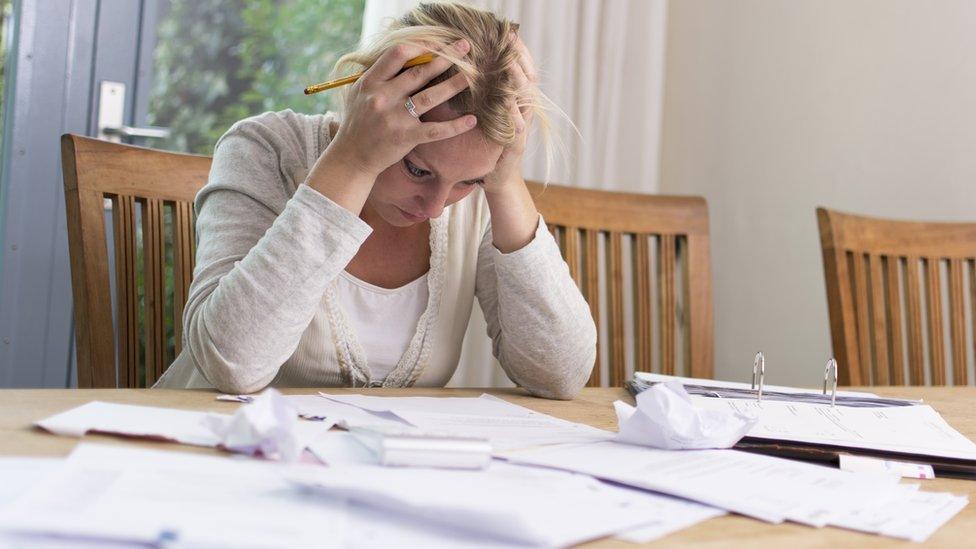Covid means UK 'sleep-walking into a debt crisis'
- Published
- comments

The number of people falling into severe problem debt after being hit by the impact of coronavirus has doubled since March, a charity has said.
StepChange said that 1.2 million people faced serious issues including falling behind on essential bills and using more credit to make debt repayments.
It said the UK was "sleep-walking into a debt crisis" and long-term support was needed.
Lenders and utility firms have offered bill holidays during the crisis.
Some of those have been extended during current restrictions, but there are implications for some people taking these payment deferrals.
The charity said that 25 to 34-year-olds were most likely to be falling behind on bills and borrowing to make ends meet.
Single parents and those on incomes of less than 拢20,000 were also likely to be affected, it said.
Separate research published in October by the City regulator, the Financial Conduct Authority (FCA), suggested that 12 million people in UK had low financial resilience - meaning they found it hard to pay bills or loan repayments - with a third having seen a decrease in income since the outbreak of the pandemic.
Those from a black and minority ethnic background were more likely to be affected, with 37% taking an income hit. People aged between 25 and 34 were the most likely, by far, to have had a change in employment as a result of the pandemic, the FCA said.
StepChange is calling on the government to provide targeted support to the worst affected groups, as well as extending restrictions on the use of bailiffs.
"This winter, a second national lockdown will drive unemployment, reduced hours and rising energy bills," said Phil Andrew, chief executive of StepChange.
"[Targeted funding] can reduce the hardship and damaging impact of long-term debt on health, mental health and the economy, as well as countering the impact of coronavirus on inequality."
- Published18 November 2020
- Published11 November 2020